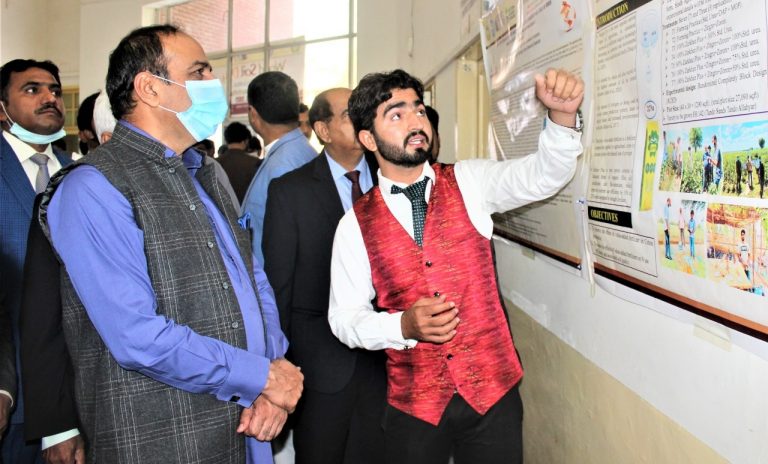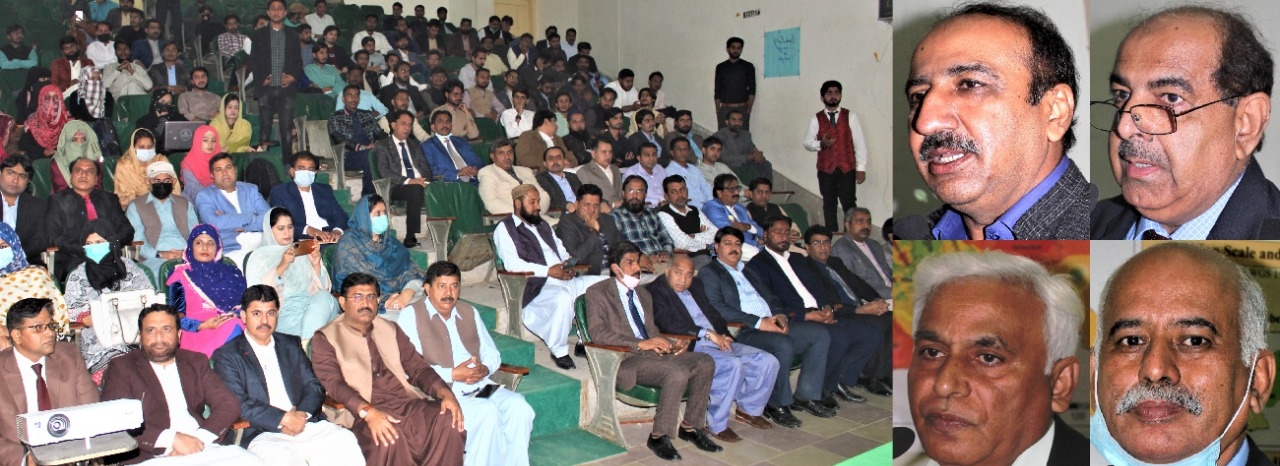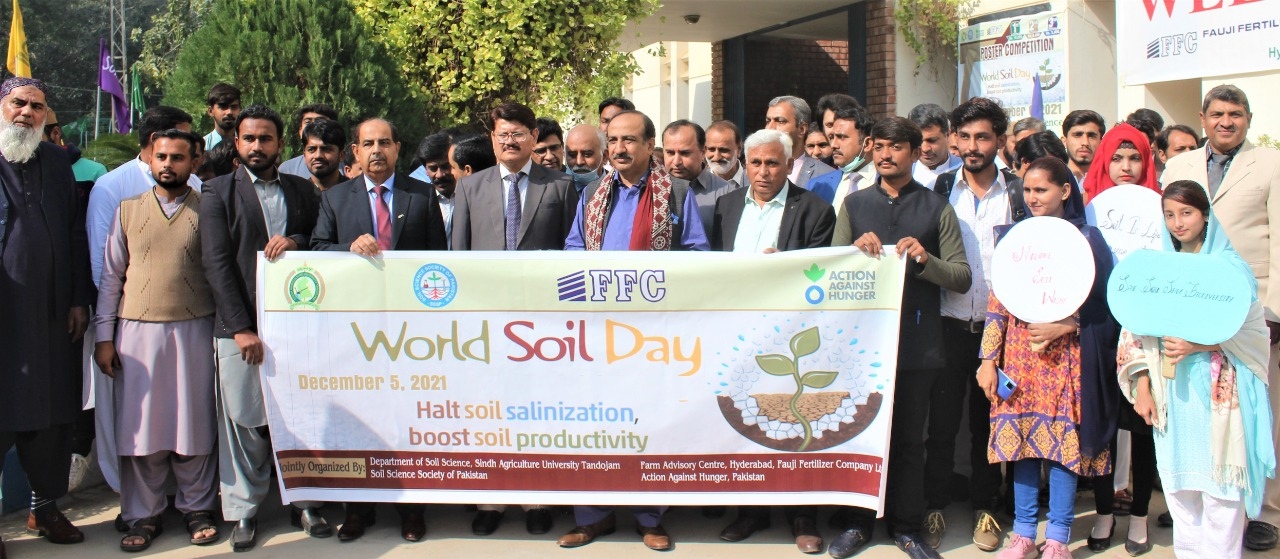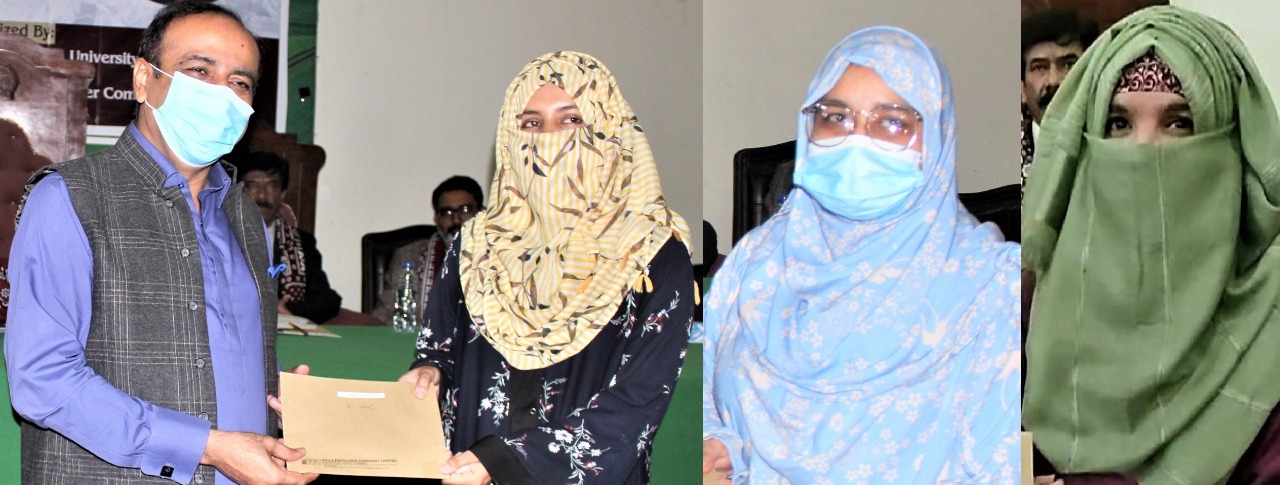
VC announces establishment of Bio-Saline Agriculture Center at Sindh Agricultural University.
Tando Jam
Agriculture and Soil experts of Sindh fear that rapidly increasing salinity in the soil could pose a serious threat to food security as the rising salinity in agricultural land due to various reasons is leaving a profound effect on the agricultural production of the country.
They expressed views at a seminar on ‘World Soil Day’ hosted by Sindh Agriculture University Tando Jam in collaboration with Soil Science Society of Pakistan, Soil Science Department and Farm Advisory Center (FFC) on Monday.

Addressing the seminar titled “Halt soil salinization, boost soil productivity” at Dr. A. M. Sheikh Auditorium, Dr. Fateh Marri, Vice Chancellor, Sindh Agricultural University (SAU), said that climate change, rising substandard groundwater in agriculture land and sea water intrusion are the main reasons for the increase of salinity in agricultural land.
He said that with a focus on reducing the salinity of the soil, research on crop cultivation on saline affected lands should be intensified. In this regard, he also announced the establishment of Bio-Saline Agriculture Center at Sindh Agricultural University.
 Dr. Inayatullah Rajpar, Chairman, Department of Soil Science, said that agricultural land of Sindh is most affected by salinity. Although no salinity survey has been conducted in Sindh for a long time, it is estimated that at present 6.3 million hectares of land is deteriorating due to salinity.
Dr. Inayatullah Rajpar, Chairman, Department of Soil Science, said that agricultural land of Sindh is most affected by salinity. Although no salinity survey has been conducted in Sindh for a long time, it is estimated that at present 6.3 million hectares of land is deteriorating due to salinity.
Abdul Jaleel Jarwar, Deputy Manager Marketing, Fuji Fertilizer Company, said that in view of the soil affected by salinity, the biological control can be used to grow crops on land. According to him, at present agricultural land covers an area of 7.9 million hectares affected by salt.
Nizamuddin Depar, head of the Soil and Environmental Sciences at the Nuclear Institute of Agriculture, said many crops could be cultivated under bio-saline agriculture, and added that housing schemes were increasingly being built on agricultural land.
Dr. Ghulam Murtaza Jamro, General Secretary, Soil Science Society of Pakistan, said that healthy soil is an important component of agriculture, and agricultural scientists can solve the problems facing local farmers by providing them with the latest technology information on soil fertility.
Mehboob Ali Siyal, Director, Nuclear Institute of Agriculture, Dean Dr. Naimatullah Leghari, Dean Dr. Syed Ghiyasuddin Shah, Zahoor Ahmed Palejo, Project Manager, Action Against Hunger Pakistan, Pir Ahmad Naqi Shah, Dr. Ziaul Hassan Shah, Dr. Syed Javed Shah, Nabi Bakhsh Jamro, Dr. Saleem Bhatti and others participated.

A poster exhibition was also organized by the students regarding the soil in which Miss Iqra secured first, Miss Razia Sultana second and Miss Alia Rajput got third position. Vice Chancellor distributed cash prizes among the successful students. (PR)
____________________